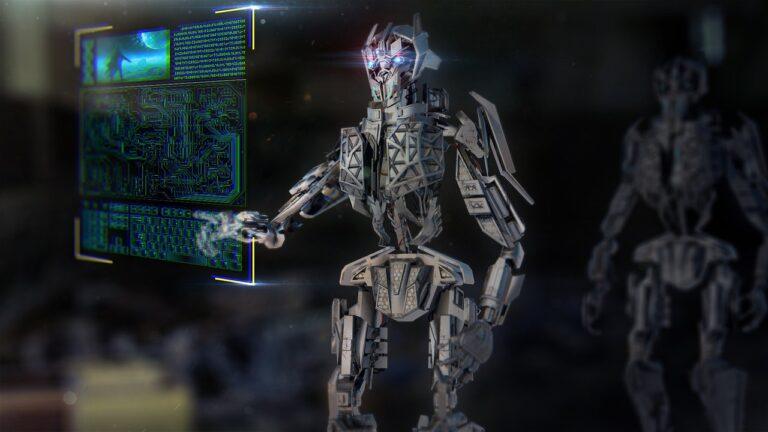On August 8, Google DeepMind took to social media platform X (formerly known as Twitter) to share insights into their latest research project involving a robotic system designed to play table tennis.
Google DeepMind is a prominent artificial intelligence (AI) research lab that operates under the umbrella of Alphabet Inc., Google’s parent company. It was formed by merging two leading AI teams: Google Brain and the original DeepMind team. This combined effort has propelled Google DeepMind to the forefront of AI innovation, focusing on developing advanced AI systems that can tackle some of the most complex scientific and engineering challenges.
DeepMind was initially founded in 2010 with a strong emphasis on deep reinforcement learning, a method that combines deep learning with reinforcement learning. The lab gained widespread attention with the creation of AlphaGo, the first AI system to defeat a world champion in the game of Go, a feat that was considered a decade ahead of its time. This success led to further advancements in AI, including the development of AlphaFold, an AI that predicts 3D models of protein structures with remarkable accuracy, revolutionizing the field of biology.
In 2023, Google merged its AI research divisions to form Google DeepMind, aiming to unify efforts and accelerate progress in AI. One of their most recent projects is Gemini, a next-generation AI model that reportedly outperforms some existing AI models, like GPT-4, on specific benchmarks.
According to Google Deepmind’s thread on X, table tennis has long been used as a benchmark in robotics research due to the sport’s unique combination of high-speed physical movement, strategic decision-making, and precision. Since the 1980s, researchers have utilized the game as a testbed for developing and refining robotic skills, making it an ideal candidate for Google DeepMind’s latest AI-driven exploration.
To train the table tennis robot, Google DeepMind started by gathering a comprehensive dataset of initial ball states. This dataset included critical parameters such as the position, speed, and spin of the ball, which are essential for understanding and predicting ball trajectories during a match. By practicing with this extensive library of data, the robot was able to develop a range of skills necessary for table tennis, including forehand topspin, backhand targeting, and the ability to return serves.
The training process initially took place in a simulated environment, which allowed the robot to practice in a controlled setting that accurately modeled the physics of table tennis. Once the robot demonstrated proficiency in the simulated environment, it was deployed in real-world scenarios where it played against human opponents. This real-world practice generated additional data, which was then fed back into the simulation to further refine the robot’s abilities, creating a continuous feedback loop between simulation and reality.
One of the key innovations in this project is the robot’s ability to adapt to different opponents. Google DeepMind designed the system to track and analyze the behavior and playing style of its human adversaries, such as which side of the table they preferred to return the ball to. This capability enabled the robot to experiment with various techniques, monitor their effectiveness, and adjust its strategy in real time, similar to how a human player might alter tactics based on their opponent’s tendencies.
During the research, the robot was pitted against 29 human opponents with varying skill levels, ranging from beginners to advanced players. The robot’s performance was assessed across these different levels, and overall, it ranked in the middle of the participants, indicating that it operates at the level of an intermediate amateur. However, when faced with more advanced players, the robot encountered limitations. Google DeepMind acknowledged that the robot was unable to consistently beat advanced players, citing factors such as reaction speed, camera sensing capabilities, spin handling, and the challenges of accurately modeling the paddle rubber in simulations as contributing factors.
Google DeepMind concluded its thread by reflecting on the broader implications of this work. They highlighted how sports like table tennis provide a rich environment to test and develop robotic capabilities. Just as humans can learn to perform complex tasks that require physical skill, perception, and strategic decision-making, so too can robots, provided they have the right training and adaptive systems in place. This research not only advances the field of robotics but also offers insights into how machines can be trained to handle intricate real-world tasks, potentially paving the way for future innovations in AI and robotics.
Featured Image via Pixabay
This news is republished from another source. You can check the original article here







